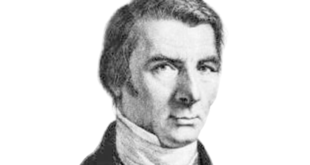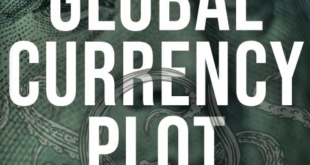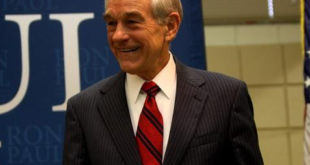While artificial intelligence has its merits, it still cannot perform the job of the Misesian entrepreneur. That is a good thing. Original Article: "Will AI Learn to Become a Better Entrepreneur than You?" This Audio Mises Wire is generously sponsored by Christopher Condon. [embedded content] Tags: Featured,newsletter
Read More »Biden versus Bastiat
Whether well-intentioned or otherwise, a “Made in China” ban for construction materials on federally funded infrastructure projects will benefit a chosen political class to the detriment of all else. “This rival, which is none other than the sun, is waging war on us so mercilessly . . . We ask you to be so good as to pass a law requiring the closing of all windows, dormers, skylights.” Frédéric Bastiat’s scathing satire of the absurdity of protectionist policies,...
Read More »Ludwig von Mises’s Monetary Theory in Light of Modern Monetary Thought
Ludwig von Mises's contributions to the development of the technical methods and apparatus of monetary theory continue to be neglected today, despite the fact that Mises succeeded exactly eight decades ago, while barely out of his twenties, in a task that still admittedly defies the best efforts of the most eminent of modern monetary theorists, viz., integrating monetary and value theory. Such a unified and truly "general theory" is necessary to satisfactorily...
Read More »Money versus Monetary Policy
Money is simple. The political program of monetary "policy" is not. Original Article: "Money versus Monetary Policy" This Audio Mises Wire is generously sponsored by Christopher Condon. [embedded content] Tags: Featured,newsletter
Read More »The Power of Woke: How Leftist Ideology Is Undermining Our Society and Economy
“It’s an important part of society whether you like it or not,” lexicologist Tony Thorne, referring to “wokeness,” told The New Yorker’s David Remnick in January. That’s an understatement. Wokeness is poisoning the Western workplace and constraining small and family businesses, midsized banks, and entrepreneurs while enriching powerful corporations and billionaires. It’s eating away at the capitalist ethos and killing the bottom-up modes of economic ordering and...
Read More »Supporters Summit 2023
Save the date! Join us for our 2023 Supporters Summit, October 12–14, at the Mises Institute in Auburn, Alabama. Lew Rockwell and Jeff Deist will host a weekend filled with engaging discussion and social time with other Mises members and speakers. We'll open Thursday evening, October 12 with a reception in Auburn. Friday, October 13, we'll have discussions and lunch at the Institute and close with a dinner at the new and unique Botanic in Opelika. Saturday, we'll...
Read More »Food and Shelter Prices Keep Climbing as CPI Growth Hits a Three-Month High
We're still living with the consequences of the massive monetary inflation by Trump and Biden. Prices are stubbornly high, and falling real wages are driving Americans to say things are getting worse. Original Article: "Food and Shelter Prices Keep Climbing as CPI Growth Hits a Three-Month High" This Audio Mises Wire is generously sponsored by Christopher Condon. [embedded content]...
Read More »Is Capitalism to Blame for the Ohio Train Disaster?
On this episode of Radio Rothbard, Ryan McMaken and Tho Bishop address whether the Ohio train disaster is an example of “capitalism gone amuck”. They discuss Murray Rothbard’s views on pollution, the secondary consequences of the regulatory state, and the decaying qualities of modern financialization. Also, join the Mises Institute in Tampa this month for a special event featuring Per Bylund, Jeff Deist, Tho Bishop, and Brett Lindell, on February 25. Learn more at...
Read More »The Global Currency Plot
—from the Summary … Democratic socialism—the ideology that dominates the world today—aspires to become a world state. The route toward it requires a single world currency to be created. That would undoubtedly create a dystopia. Might this become a reality? And if so, how can it be averted? This book aims to find answers to these questions. Part 11. Concerning Right Thinking: Logic The arguments in this book claim to be strictly logical. For a better understanding, a...
Read More »Why Ron Paul Is Right
The great Dr. Ron Paul has been right about all the major issues that confront the world today. He is right about the Fed, the Ukraine war, the FBI, and so much else. How has he managed to do that? What has given him wisdom unique on the political scene today? The answer is simple. He has consistently applied the teachings of the greatest political thinker of the twentieth century, Murray Rothbard. Ron Paul is a consistent Rothbardian. Let’s look at a few cases...
Read More » Swiss Economicblogs.org
Swiss Economicblogs.org





